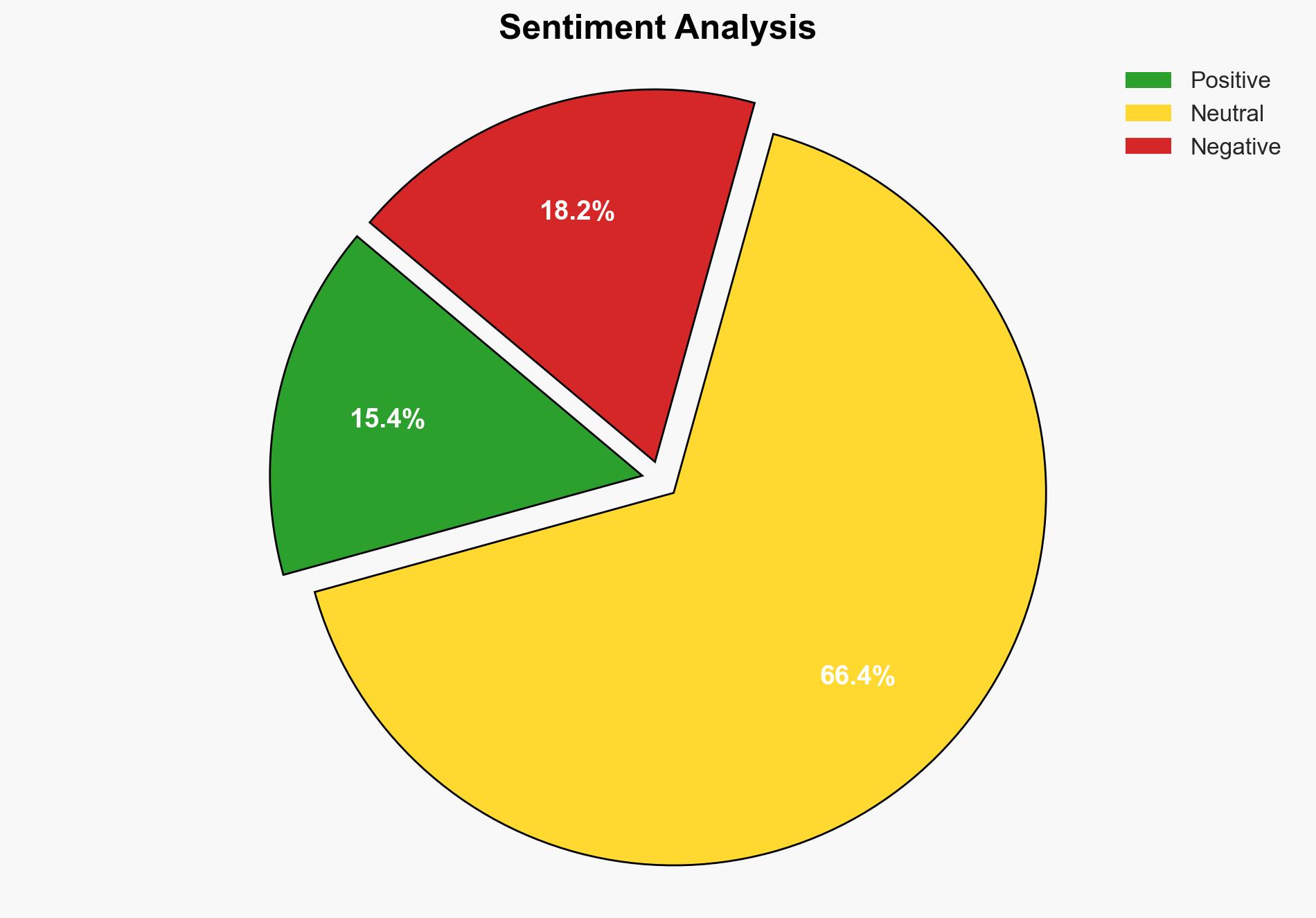Why is Israel intensifying its attacks on Gaza after two months of ceasefire Analysts weigh in – CNA
Published on: 2025-03-20
Intelligence Report: Why is Israel intensifying its attacks on Gaza after two months of ceasefire Analysts weigh in – CNA
1. BLUF (Bottom Line Up Front)
Israel has resumed military operations in Gaza following a two-month ceasefire due to stalled negotiations and internal political pressures. The timing coincides with the start of Ramadan, potentially exacerbating regional tensions. Key factors include domestic political dynamics, international mediation challenges, and strategic military objectives. Immediate recommendations focus on diplomatic engagement and conflict de-escalation.
2. Detailed Analysis
The following structured analytic techniques have been applied for this analysis:
General Analysis
Israel’s decision to intensify attacks on Gaza follows the expiration of a ceasefire agreement with Hamas. The ceasefire, effective since January, was not extended due to failed negotiations. The renewed offensive, announced by Israel, aims to regain leverage in negotiations and address domestic political pressures. The timing, during Ramadan, suggests a calculated move to maximize impact. Analysts, including Daniel Levy and Eyal Mayroz, highlight the influence of internal political dynamics, such as public demonstrations and coalition stability, on Israel’s military strategy.
3. Implications and Strategic Risks
The resumption of hostilities poses significant risks to regional stability, potentially escalating into broader conflict. The timing during Ramadan increases the likelihood of heightened tensions across the Muslim world. Domestically, Israel faces political instability, with potential impacts on government cohesion and public support. Internationally, the conflict may strain relations with key allies and affect ongoing diplomatic efforts in the region.
4. Recommendations and Outlook
Recommendations:
- Engage in immediate diplomatic efforts to broker a renewed ceasefire and facilitate dialogue between conflicting parties.
- Enhance intelligence-sharing and coordination with international partners to monitor and mitigate escalation risks.
- Implement measures to address domestic political pressures, ensuring government stability and public confidence.
Outlook:
In the best-case scenario, diplomatic interventions lead to a renewed ceasefire and de-escalation of hostilities. The worst-case scenario involves a prolonged conflict, destabilizing the region and impacting global economic interests. The most likely outcome is a temporary intensification of conflict, followed by renewed negotiations under international pressure.
5. Key Individuals and Entities
The report mentions significant individuals and organizations, including Benjamin Netanyahu, Daniel Levy, Eyal Mayroz, Ronen Bar, Itamar Ben Gvir, and Donald Trump. These individuals play pivotal roles in the ongoing conflict dynamics and political landscape.





